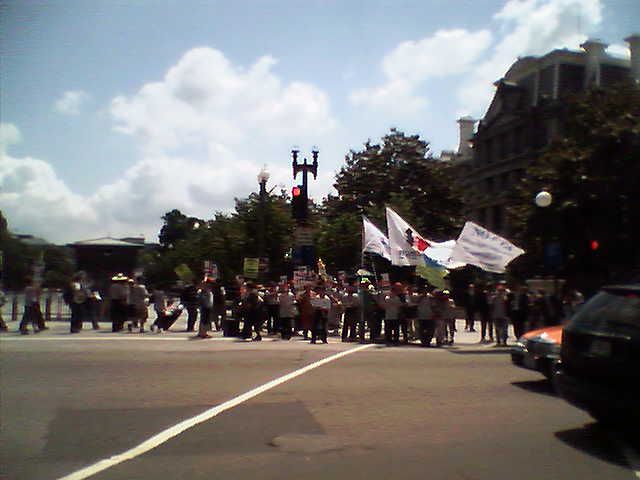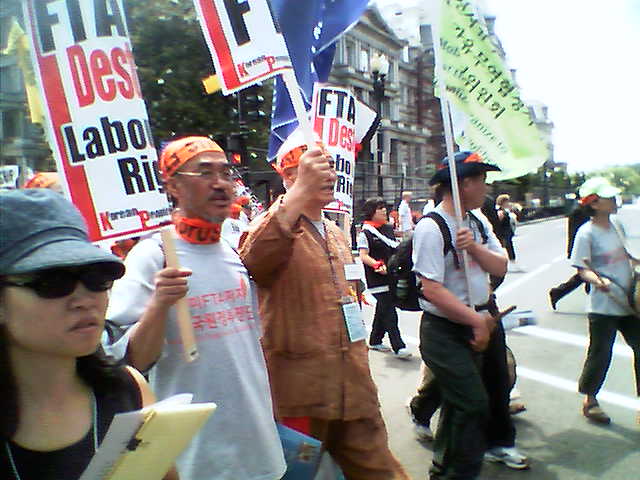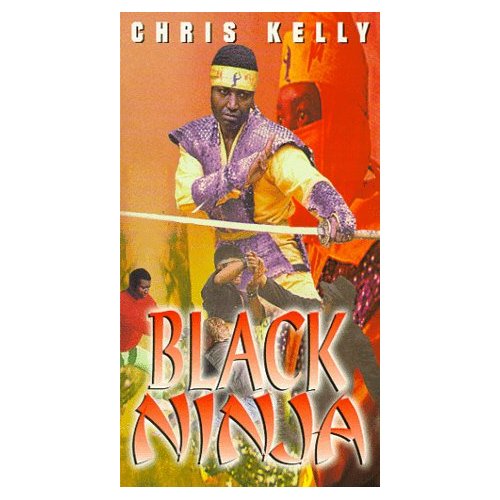The following is slightly modified from a response to an e-mail I received requesting recommendations for good “films on Japan” such as Lost in Translation of The Last Samurai.
The recent double threat of Lost in Translation and Last Samurai (but not the dud Memoirs of a Geisha), like some other popular Japan-themed films, were all good, entertaining movies, but I never felt like any of them gave me much insight on my experiences in Japan. As an alternative, I present my picks, in descending order of how highly I recommend them, that weren’t necessarily the best-made or most purely entertaining, but nonetheless got me thinking about the US-Japan relationship or the experiences I had while I was (ostensibly) studying there:
Fog of War (2003) – Essentially a long interview with Robert McNamara, Secretary of Defense under Presidents Kennedy and Johnson and WW2 vet who helped orchestrate the firebombing of Japan in 1945. The movie is great on so many other levels, but I recommend this to those studying Japan for the sections that talk about “proportionality in war” and the wholesale bombing of Japan. America destroyed a majority of most of Japan’s cities and capped it off with two atomic bombs. Consider this – the US visited upon Japan heretofore untold destruction and chaos. McNamara asks: was this proportional to US aims? Having watched this movie, it makes perfect sense to me why many Japanese seem to treat visiting Americans as if the GHQ were still around. The film serves as a good conversation starter and a challenge to the bland rationalizations that Americans learned in their US History classes in high school.
Seven Samurai (1954) – I am in no way a film buff (look at my other recommendations!), but this movie is one of the best action movies I’ve seen from any country. Seven guys, and they all get a chance to kick some ass. This film is all about being a man, so ladies should probably stay away- that is, if they can resist the mysterious allure of Toshiro Mifune.
Mr. Baseball (1992) – Tom Selleck plays an aging Yankee sent to play for Chunichi Dragons. Hates it, won’t listen to coach, but in the end learns to work within the system while teaching his stuffy coach a thing or two and, of course, sleeping with his daughter. All you male ALTs out there could only hope to be so lucky! Then again, none of you are Tom Selleck. For better or worse, this is considered to be a pretty well-done “American fish out of water in Japan” movie. Even though the plot is something of a gaijin fantasy, it’s a generally true-to-life portrayal of Japan that can at the very least serve as a heads-up to some of the more obvious culture shocks (squat toilets, low doors, weird guys screaming strange English at you).
Whispers of the Heart (1995) – This is a movie from Ghibli Studios (think Princess Mononoke) about a little girl who falls in love with a fiddle-playing wunderkind and finds mystical guidance from a magical German cat. Boring! Forget the story and take in the sights as she walks around a lovingly and painstakingly detailed animated depiction of suburban Japan. I’d recommend this more to returnees than newcomers, but this movie could come in especially handy during those inevitable “Japan-hating gaijin” periods. I mean, if the Miyazaki crew could find this much to love about Japan, then there’s got to be some good stuff left over for little old you, too. One thing that didn’t sit right with me about WOTH would have to be the “dealing with your own mediocrity” theme that is featured in this movie and common elsewhere in Japanese pop culture (See “Sekai ni Hitotsu Dake no Hana” by SMAP). Call me an idealist, but I’m not ready to give up that easily, and neither should young Shizuku!
BTW, this movie turned me into a John Denver fan, and if watching it doesn’t make you a convert, then you should at least understand why so many Japanese people like him.
MXC – Show on Spike TV that’s a (loose) dub of an older Japanese show featuring host Beat Takeshi as he presides over the painful experiences of contestants in a brutal obstacle course game show. I can imagine nothing more humiliating in life than being run over by an enormous, papier-mache boulder and then being fire hosed by a Power Rangers villain as punishment. This should serve as a great introduction to Japan’s culture of humiliation, pointless endurance, and unabashed gaudiness. Sadly, this type of stuff is no longer typical of Japanese TV (at least when I was there, lots of tame talk shows, eating shows, and dating shows – though it looks like pain TV seems to be making something of a comeback these days).
Gung Ho (1986) – Funniest scene in this movie is the corporate re-education camp in the beginning (ribbons of shame, anyone?). Michael Keaton plays a union leader in the Midwest who convinces a Japanese auto company to take over a shut down factory. The American workers, including George Wendt of “Cheers” fame, get uppity when the Japanese managers expect them to work with no sick time or human dignity, as Japanese supposedly do. Never mind that real managers at Japanese auto factories in the US never tried this in real life. The plot twists this way and that, but eventually the workers make a near-impossible promise to become as productive as any Japanese plant within a month – Can they do it? Yes, sort of. The message? If only American auto workers would give up their silly unions and work themselves to the bone, then the jobs would stay. The movie suffers from some annoying performances, one-dimensional characters, and bad writing in general, but it is still worth watching just to see how scary Japan was to the US back in 1986. We let go of those fears a bit too early, if GM’s fate is any indicator.
Bad News Bears Go to Japan (1978) – The always-annoying Bears go to Japan to play an exhibition game at the urging of a scheister TV producer, and literally everyone ends up getting ticked off in the process, especially the audience. Recoil in horror as a 13-year-old “bad boy” (signified by a peach-fuzz mustache IIRC) Bear creepily stalks and tries to force himself on an unsuspecting Japanese girl. It’s pure dreck, full of unapologetically racist and willfully ignorant sentiment, and almost unwatchable. Why do I recommend it, then? Because this is probably how your mom and dad see Japan. Redeeming quality: wrestling legend Antonio Inoki makes an appearance. Grunting, fuming Antonio Inoki, folks. His shtick hasn’t changed a bit in the almost 30 years since this movie was made.





